How do you edit your story before submitting your manuscript to a publisher? Do you use a professional editor? Or do you self-edit?
My recommendation, from personal experience, is to get another pair of eyes to look over your work.
I’m not talking about readers who leave comments or reviews in a writing community, but someone with professional publishing experience: an editor who has the right skills, qualifications, and experience in the editing and publishing world.
Also, find someone who specializes in your genre so they can spot things related directly to your book’s genre. For example, if you’re a romance writer, then get an editor with experience in the romance genre, rather than a nonfiction editor.
Here are the common excuses for not getting your story properly edited:
- I can’t afford a proper editor
- I’ve got good enough editing skills – after all, I topped my high school English class
- I’m terrified of having my story criticized and butchered to pieces
I’m hoping this article will help writers to consider how a more thorough editing process with the right editor will help boost the chances of a publisher saying “yes” to a manuscript. Of course, you need to take in other factors, for example, is the story potentially ‘hot’ in the market? Is it sellable? That’s why publishers have acquisitions editors.
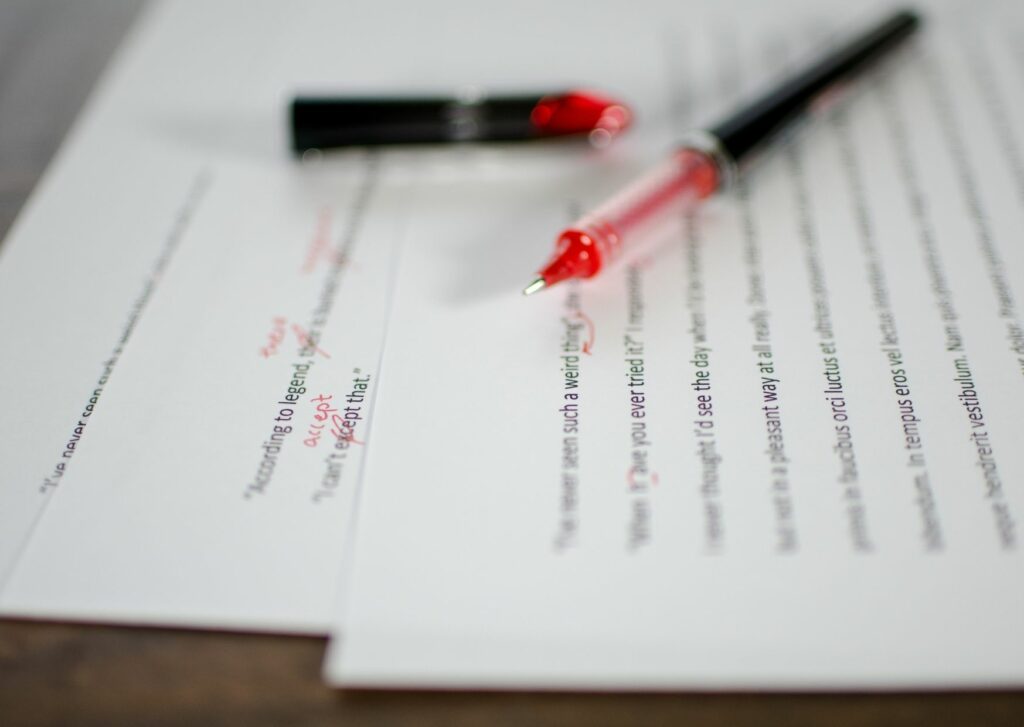
1. I can’t afford a proper editor
My question to you is: have you looked hard enough? If you’re still telling me the same thing, then keep looking.
There are editors who are affordable and great to work with. Google is your friend. Ask around in writing groups, community forums, or social media book-related groups. Facebook has a plethora of groups where readers, writers, and editors unite to support each other.
Instagram and Twitter are other places where you can find editors and editing companies.
Writers’ associations also namedrop editors from time to time. There are different freelance websites too, so check these out. Pick your editors carefully; check that they have the right language skills that match the language of your manuscript. Try to find someone with industry experience (they’ve been around long enough to pass on their first-hand knowledge and experience).
There are different types of editors including developmental editors, structural editors, copy editors, and proofreaders. I won’t go into detail in this blog article, but you can read 6 Types of Editing on Reedsyblog to determine what editing suits your needs best.
2. I’ve got good enough editing skills
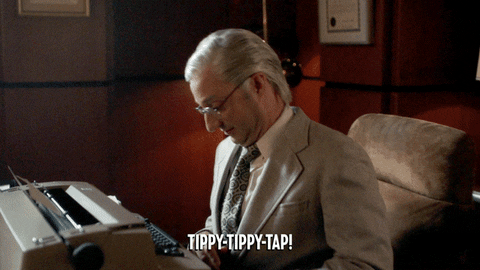
You scored top grades in your high school English class and got into a literature or journalism course. In fact, you work as a writer, editor, or communications professional in your day job. Heck, you’ve even got a Master’s degree.
You don’t need an editor, right? Why waste time and money when you can do it yourself? You’ve received enough comments, ratings, story “likes”, and other feedback from your writer’s group and community platforms for stories. Your story has been handpicked by the organizers of the community to be officially featured. Your readers tell you how much they love your story and how it made them cry, laugh, etc.
Sounds familiar?
Hmm, yeah. However, is our self-edited work good enough for publishers?
C’mon, let’s be serious. If self-editing has worked for you, then that is an achievement and I’m your cheerleader. I know someone who had his work traditionally published after years of self-editing, and I have a copy of his book on my bookshelf (I’ve read it twice and it’s really good). 🙂
However, many of us aren’t that lucky. The reality is that you may not be the best person to edit your work.
Let someone else be the second pair of eyes to give you sound advice and help you find the flaws in your story, may it be plot or character development, grammar and spelling errors, or even using a style guide that’s different from ones that the publishers use. There are some things good editors pick up that programs such as Grammarly don’t spot.
3. I’m terrified of having my story criticized and butchered to pieces
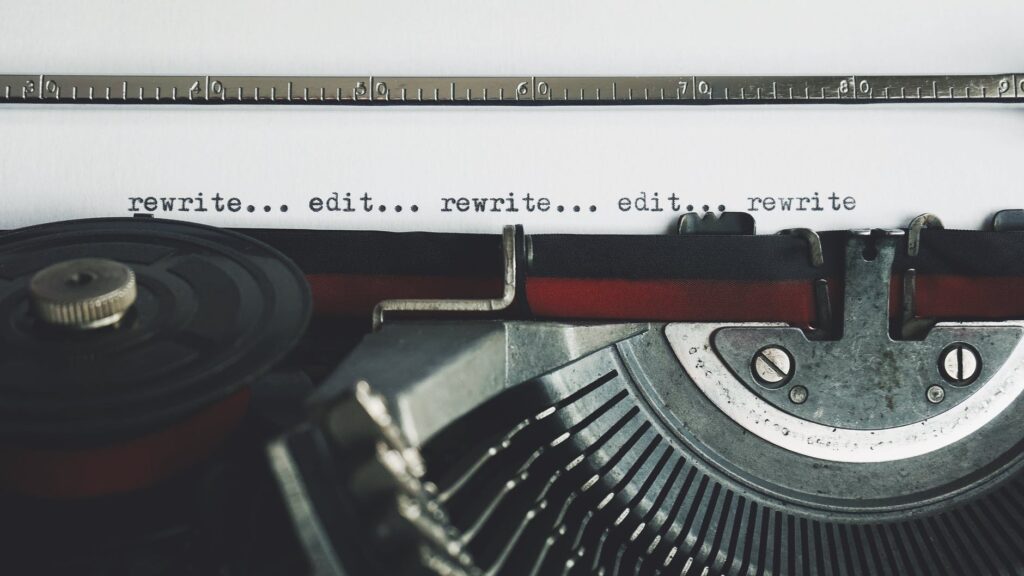
Well, would you rather wait until you get butchered to pieces by reviewers on Amazon, Goodreads, or other places?
Editors are meant to help you progress, not hinder you. Trust your manuscript in the hands of good editors and you’ll thank them later.
Allow them to criticize and perform surgery on your manuscript. They may save your book’s life. No publisher wants a sloppy manuscript, nor do they want to see poorly developed characters or flimsy plots. If your story is filled with purple prose and overly long and boring descriptions, it’ll end up in file number thirteen (the trash).
I challenge you to find the toughest editor who might even scare you a little. From personal experience, I found the best editors were my toughest critics. They found flaws that I would never have spotted in a million years!
Can editing help boost your book’s rating?
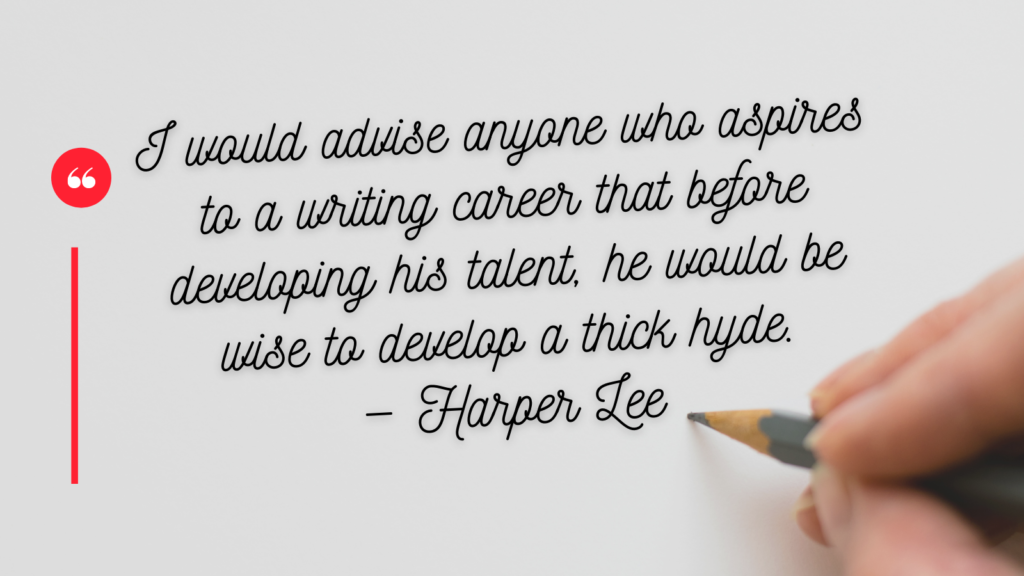
I can’t give a definite answer but I’d like to think that a nicely edited book improves its ratings and reviews. Getting your story properly edited might turn a three-star book into a four-star book, or a four-star book into a five-star book. In the world of social media, where emotions and jealousy are rife, there are plenty of trolls who, like loose cannons, may leave a one-star rating with no review. The four and five-star reviews may save your story from tanking on Amazon.
How do you aim to get good reviews? Make sure your story is a top-quality one.
In my case, I depend on readers I don’t personally know to leave reviews because my family and personal friends won’t buy or read my books.
They’re not being mean, believe me (I’m laughing here). I write erotic romances—my mother, sister, brother, and my best friends will not read something I’ve written along the lines of 365 Dni or Fifty Shades of Grey. They don’t want to think of explicit sex scenes with BDSM, kink, and ménage à trois when we catch up. My husband hasn’t read my stories, and he won’t read them either. He’s not interested in hunky gigolos or sexy cowboys.
Other useful articles
- Tips on how to get published and which publishers to avoid
- Types of literary tropes in their true meaning
- How to write great sex scenes
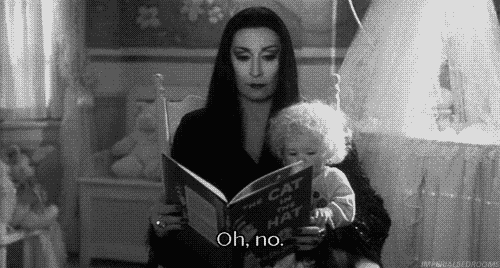
I always think of editing like getting my hair cut. I can do it myself, but someone who knows what they’re doing will take care of my hair and make me look good.
Yes, that’s so true!!! I’ve done my own hair and it’s never as good as when my hairdresser does it.
Very useful article Estelle, I was #1 when I just started out lol then again i had no experince with professional editors back then and didn’t even understand what the heck developmental editor meant 🙄 and I still didn’t know you had different types either so thanks for the info!
Thanks, Latty. I’m glad the article is useful 🙂